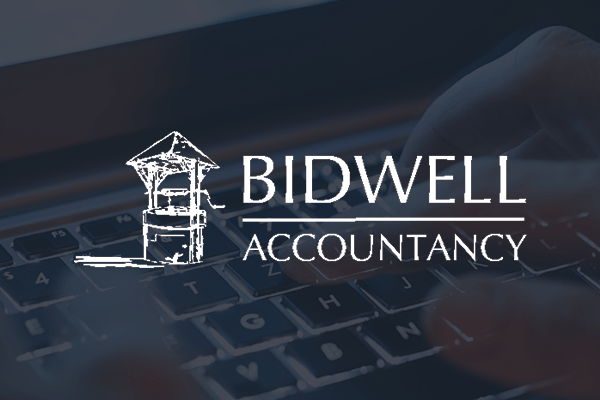June Newsletter

In this month’s newsletter: Holiday lets, some useful information on tax incentives and benefits. If you are thinking about employing students over the summer holidays there are a few considerations which we’ve outlined. You’ll see we have included an article on the financial implications of stock management, particularly relevant at the moment as material costs continue to soar. Our final piece is about the new advisory fuel rates that came into play in March this year. As ever we conclude with deadlines and diary dates you need to know about.
We hope you enjoy the month ahead and please do contact us if we can help in any area of your business.
Holiday lets - occupancy and benefits
There are a number of tax incentives if you own and let a furnished holiday lets property (FHL). They include:
- Claiming Capital Gains Tax reliefs for traders (Business Asset Rollover Relief, Business Asset Disposal Relief, relief for gifts of business assets and relief for loans to traders),
- Entitlement to claim capital allowance deductions for items such as furniture, equipment and fixtures, and
- Profits earned from holiday lets count as earnings for pension purposes.
You will need to account for your holiday lets properties separately from any other rental properties and you will need to comply with the various FHL rules. They include:
- The property must be in the UK or in the European Economic Area (EEA) - the EEA includes Iceland, Liechtenstein and Norway;
- The property must be furnished. This means that there must be sufficient furniture provided for normal occupation and your visitors must be entitled to use the furniture provided;
- The property must be commercially let (you must intend to make a profit). If you let the property out of season to cover costs, but did not make a profit, the letting will still be treated as commercial;
- All your FHLs in the UK are taxed as a single UK FHL business and all FHLs in other EEA states are taxed as a single EEA FHL business. You will need to keep separate records for each FHL business because the losses from one FHL business cannot be used against profits of the other.
There are also strict rules on occupancy. To secure the FHL tax benefits you will need to let your FHL for a certain, minimum number of days each year. The occupancy rules, set on a tax year basis, are:
- Your property must be available for letting as furnished holiday accommodation letting for at least 210 days in the year.
- You must let the property commercially as furnished holiday accommodation to the public for at least 105 days in the year.
Do not count any days when you let the property to friends or relatives at zero or reduced rates as this is not a commercial let.
Do not count longer-term lets of more than 31 days, unless the 31 days is exceeded because something unforeseen happens. For example, if the holidaymaker either: falls ill or has an accident and cannot leave on time or has to extend their holiday due to a delayed flight.
If you do not let your property for at least 105 days, you have two options (known as elections) that can help you reach the occupancy threshold.
As you can see, there are a few hoops to climb through to achieve FHL status, but the tax rewards for doing so are significant.
Employing students in the summer break
If you employ students to manage your staff needs over the summer break period, you will need to add them to your payroll and apply PAYE and NIC rules.
Students should be advised that they will pay tax and NIC if:
- they earn more than £1,048 a month on average, and
- pay NIC if they earn more than £190 a week from 6 April 2022 to 5 July 2022 and more than £242 from 6 July 2022 to 5 April 2023.
Students can also apply for a possible tax refund if they work for part of a tax year.
Students who normally live and study in the UK but work abroad during the holidays will need to pay:
- UK tax on anything they earn above their Personal Allowance, currently £12,570, and
- National Insurance if they work for a UK employer.
If students work for a foreign employer, they do not need to pay National Insurance in the UK, but may have to pay contributions in the country they are working in.
Stock holding and inflation
If your business processes materials or assembles goods for sale it will need to keep a stock of items to ensure that future sales can be met.
Ideally, stock levels should be kept to a minimum such that hard won cash reserves are not tied up unnecessarily. You will need to manage stocks to cover current production needs and consider supply issues - how long will it take to replace stock.
Innovation can throw a spanner in the best laid stock management plans. You may be left with redundant stock.
When prices are falling - in deflationary times - you will not want to hold excess stocks that could be replaced by lower cost items.
Alternatively, when prices are rising - in inflationary times - the opposite applies. You might benefit from investing in increasing stocks if prices for materials are rising, subject to redundancy issues. For example, if lower cost alternatives enter the market, you may be left with redundant stock or suffer reductions in your profit margins.
Maintaining stock levels is a constant play-off between working capital and profitability. Unfortunately, external factors - currently, inflation and supply delays - are playing havoc with stock management.
If your business is required to hold significant levels of stock and you are unsure how best to maximise the effective use of resources, please call. We can help you consider your options.
Advisory fuel rates
If you pay for the fuel used in your company car you are entitled to recover the cost of the fuel - for business journeys - based on agreed Advisory Fuel Rates (AFRs), from your employer.
If the agreement with your employer is that you pay for all the fuel costs and that none can be recovered from the employer, then you can claim for the recorded business miles at agreed AFR rates as an expense claim on your tax return or by calling HMRC.
The AFRs are updated quarterly to reflect changes in fuel prices. The rates from 1 March 2022 are:
You can use the previous rates for up to 1 month from the date the new rates apply:
Petrol
- 1400cc or less 13p per mile
- 1401cc to 2000cc 15p per mile
- Over 2000cc 22p per mile
LPR
- 1400cc or less 8p per mile
- 1401cc to 2000cc 10p per mile
- Over 2000cc 15p per mile
Diesel
- 1600cc or less 11p per mile
- 1601cc to 2000cc 13p per mile
- Over 2000cc 16p per mile
These AFRs can also be used to calculate the value of private fuel costs if your employer does pay for your private fuel. It may be possible to reimburse your employer and avoid the Car Fuel Benefit charge.
Tax Diary June/July 2022
1 June 2022 - Due date for corporation tax due for the year ended 31 August 2021.
19 June 2022 - PAYE and NIC deductions due for month ended 5 June 2022. (If you pay your tax electronically the due date is 22 June 2022).
19 June 2022 - Filing deadline for the CIS300 monthly return for the month ended 5 June 2022.
19 June 2022 - CIS tax deducted for the month ended 5 June 2022 is payable by today.
1 July 2022 - Due date for corporation tax due for the year ended 30 September 2021.
6 July 2022 - Complete and submit forms P11D return of benefits and expenses and P11D(b) return of Class 1A NICs.
19 July 2022 - Pay Class 1A NICs (by the 22 July 2022 if paid electronically).
19 July 2022 - PAYE and NIC deductions due for month ended 5 July 2022. (If you pay your tax electronically the due date is 22 July 2022).
19 July 2022 - Filing deadline for the CIS300 monthly return for the month ended 5 July 2022.
19 July 2022 - CIS tax deducted for the month ended 5 July 2022 is payable by today.

Unit 157, Milton Keynes Business Centre,
Foxhunter Drive, Milton Keynes,
Buckinghamshire, MK14 6GD
Bidwell Accountancy




